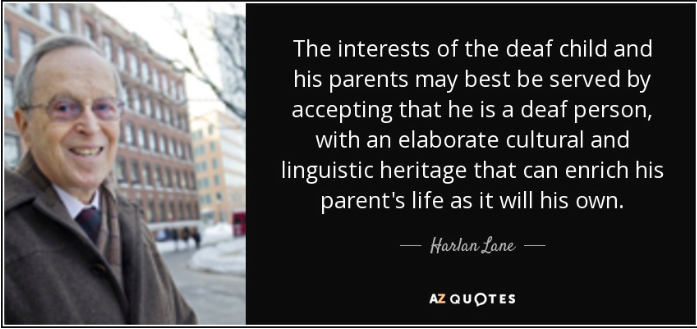Harlan Lane touted as one of the “best contributors to Deaf history,” died on July 13, 2019 at age 82.
Born in Brooklyn, New York, Lane obtained his Bachelor’s and Master’s degrees in Psychology from Columbia University as well as a Ph.D. degree from Harvard (Wikipedia). A psychologist himself, Lane was also a professor of psychology at Northeastern University in Boston, Massachusetts and founded the Center for Research in Hearing, Speech, and Language (Wikipedia). What Lane is best known for, however, is his use of research as a platform of staunch opposition to cochlear implants for the Deaf community.
Harlan Lane gained respect within the Deaf community for his fight to define and recognize Deaf culture in mainstream society. His research was primarily focused on speech acquisition, Deaf culture, and sign language.

Having written extensively on the social construction of disability, Lane asserts that “unless Deaf people challenge the culturally determined meanings of deaf and disability with at least as much vigor as the technologies of normalization seeks to institutionalize those meanings, the day will continue to recede in which Deaf children and adults live the fullest lives and make the fullest contribution to our diverse society” (Wikipedia). Among numerous awards in recognition of his work, the National Association of the Deaf (NAD) awarded Lane the Distinguished Service Award and the World Federation of the Deaf also awarded him the International Social Merit Award (Wikipedia).
Lane also achieved the Commandeur de l’Ordre desPalmes Académiques, which is known to be the highest level for academic honors given out by the French government.
On July 13, 2019, Eagle L. Hawk announced on their Facebook page that they had lost one of their “other favorite best friends.” This was one of the initial posts announcing that Harlan Lane had passed away.






